#Series of Cliches
Text
something something two atoms in a molecule
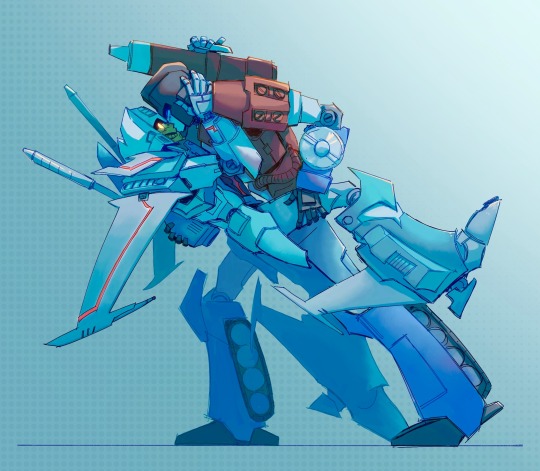

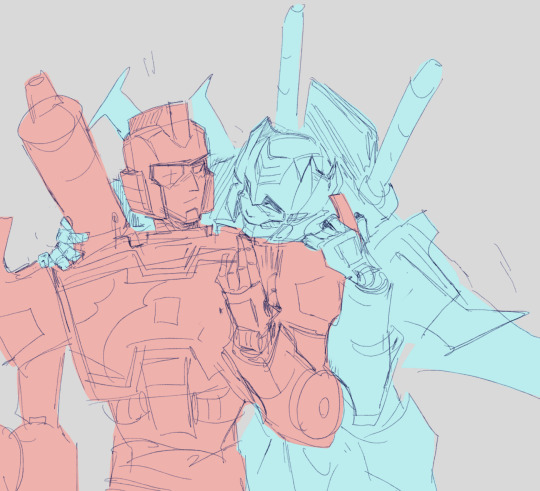
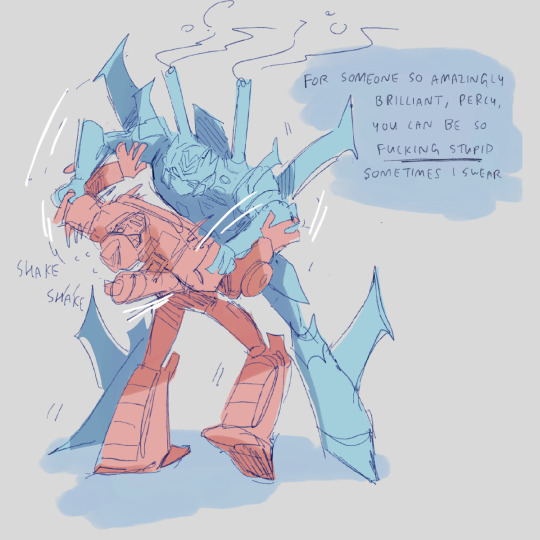
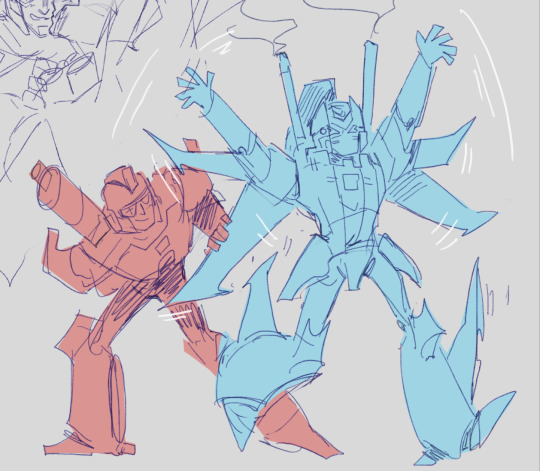
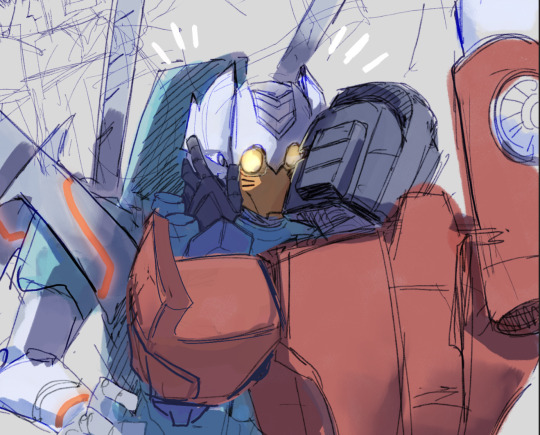
#all i draw here is robots smooching in cliche dramatic poses actually#tf idw1#mtmte#tf brainstorm#tf perceptor#simpatico#my art#you dont even understand how long i struggled finding refs of them#the design for one character is so not consistent in the same series for what reason
4K notes
·
View notes
Text
I am so happy with the conclusion of BBC Ghosts.
There were so many things I loved about the final series that I can't even keep it all straight in my brain, I'll have to rewatch it all (and the Christmas special, of course! Must remember it's the not the true end yet!)
But something I can immediately say I loved was what they didn't do. See, that line in the trailer that turned out to be from episode 5 - about there being a pattern to when they move on - worried me. One of the best things about the show, to me, is how there truly is not any reason at all to why the ghosts are there, or when they go. It's something the creators have said over and over, and that the show has always backed up; we saw so many times that, unlike in most ghost media, addressing unfinished business or achieving emotional resolution changes absolutely nothing. Pat hit some sort of emotional resolution three times. And Julian realised the importance of family, and Robin saved someone’s life, and Thomas discovered the truth of his death, and so on and so on. Finding closure isn't the end, and equally, the end isn't predicated by a climatic conclusion. It just happens. And the same is true for why people become ghosts. It just happens. And you exist, and fill your days, and then you’re gone. And no one knows why.
It's kind of the most agnostic television show I've ever seen.
I love that. Every other afterlife show I've ever seen has some kind of reward and punishment system. Or at least says that there's a reason for things, some kind of higher power at play, not necessarily a god but something like it. Even the American adaptation felt the need to bring Hell into it, which is why I need to specify that I'm only talking about the British version here. And I feel like a lot of fans wanted there to be reasons too, or felt like there simply had to be, that it wasn't even a question. I get why - it's not just because it's the standard for ghost narratives. It's really uncomfortable to think about the randomness of life and death. But Mary didn't go because of anything that happened before that day, and Cap was never going to go because he came out, and one day, when they've all gone, there won't have been a reason for it.
Because the real point of BBC Ghosts is that there is no point. You’ve just got to make it through the days, surrounded by people that irritate you, trapped in a confusing world where you’re mostly powerless. And it sucks, and you're angry, and sad, and bored as hell. And you also find happiness in the mundane chaos, and you get really good at chess, and watch the ants in the garden, and write bad poetry, and read terrible romance novels, and gamble money you don't have, and go camping, and play games, and learn French, and watch reality TV, and have sex with a decapitated Tudor nobleman’s body, and dance to old music, and look at the stars, and find that you actually really love all those annoying people after all, and that’s the point.
#bbc ghosts#bbc ghosts spoilers#bbc ghosts series 5#but imagine if they prove me wrong by melodramatically killing them all off at christmas though lmao actually that would be hilarious do it#also love so very much that they finished on a gay joke they know who's on the front lines for them <3#god it's a cliche but really do already miss 'em
741 notes
·
View notes
Text






POND PONLAWIT as HILL in FOUREVER YOU PROJECT (2024)
#pond ponlawit#fourever you project#fourever you the series#userpharawee#clairedgifs#no matter how cliche this is gonna get im HERE for pond and his incredibly gorgeous hairstyling in this series. yea im superficial that way
136 notes
·
View notes
Text

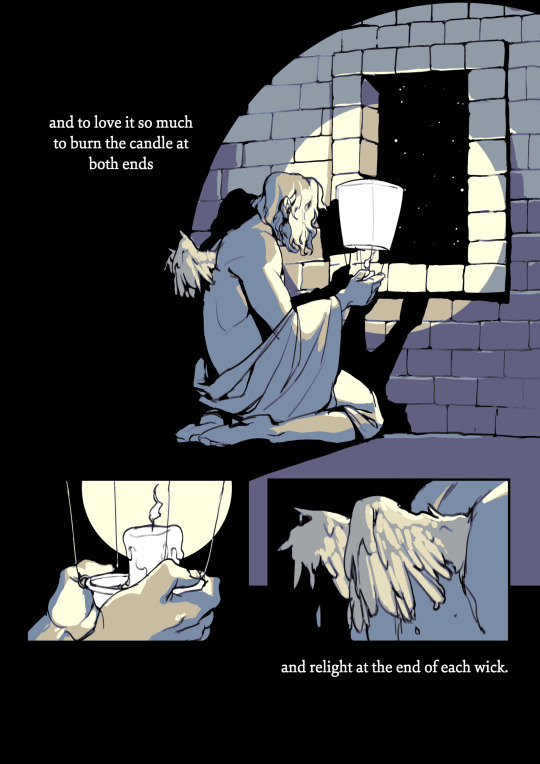
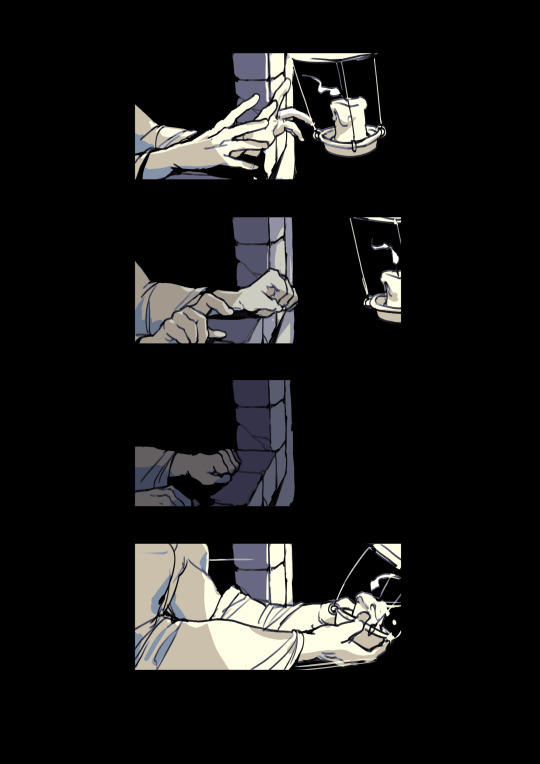
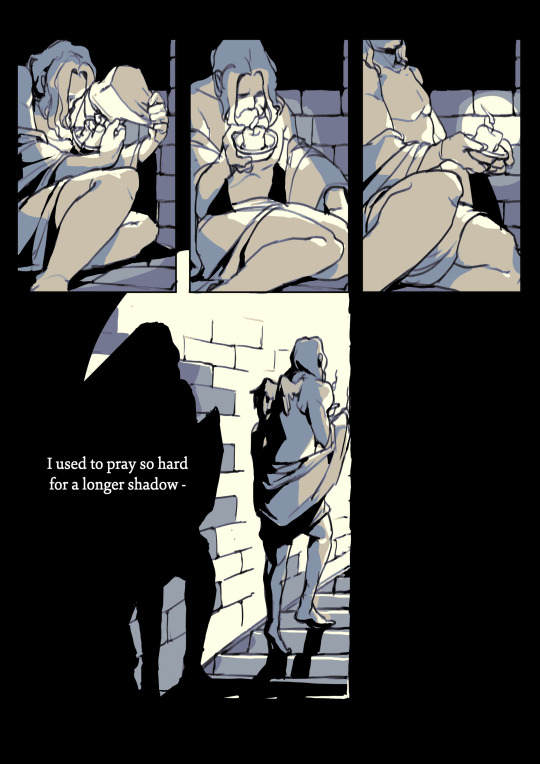
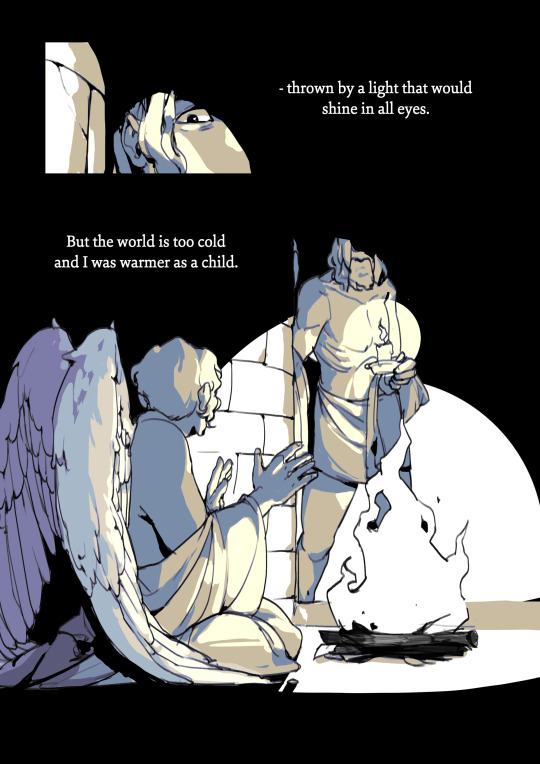

the candle.
a comic about rediscovering passion and recovering from burnout.
creative notes:
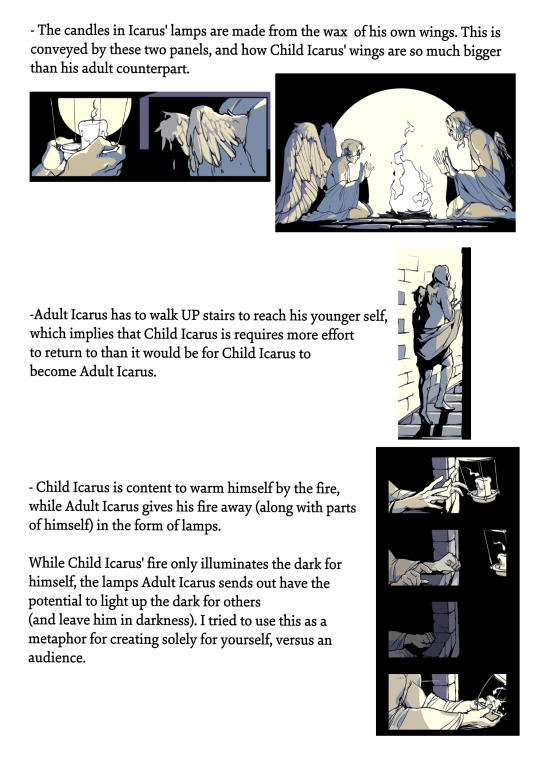
#this comic ended up feeling so much more somber than i think i originally intended#i hope the conclusion at the end comes off more settled and happy than it does reluctant or disappointed#since i do feel that way. happy that is#its a cliche but returning to your inner child#just making stuff that YOU'D like to see more of#it does wonders for making you feel less like being a creator means giving away parts of yourself#im sorry if this is coming off as preachy#obviously you can do what you like#and im not ever gonna be the wisest person in the room#im barely into my 20s#but i spent almost a year torturing myself over what i wanted to be#deciding to just...do what i thought would be cool ended up being the best possible decision#its 10pm#this series makes me really marinate in my own issues#very pretentious but at this point its my brand#comic art#stillindigo art#stillindigo comics
2K notes
·
View notes
Text
Here have some scientific elaboration for the people who still are in denial that Babe is bottoming. And not Charlie possibly riding him.
(I heard some folks didn't want to believe Babe is a bottom since ep1. I also saw such comments for a different drama where people were in denial for the same stupid reasons) 🤷♂️
Or maybe I just love that they very subtly show Babes leg position. Very minimal but they show it.

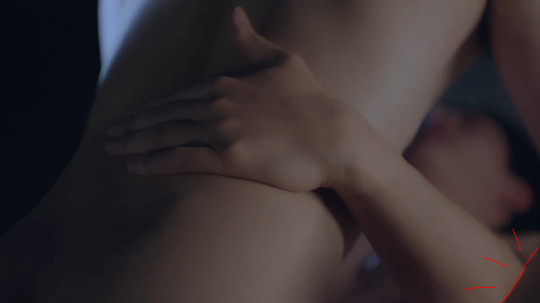
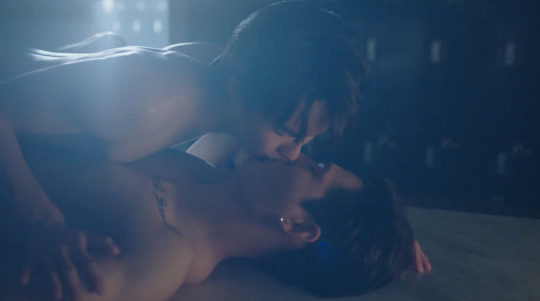

Thanks for coming to my TED talk
#I mean it was obvious since episode 1 with the other alpha and charliebabe couch sex too. but I guess some people didn't see that#and yes in such cases it is relevant cause diversity non-cliches representation etc#and it is annoying if people try to take that away with ignorance and denial of things not fitting in their worldviews#pit babe the series#ep6#charlie x babe
333 notes
·
View notes
Text
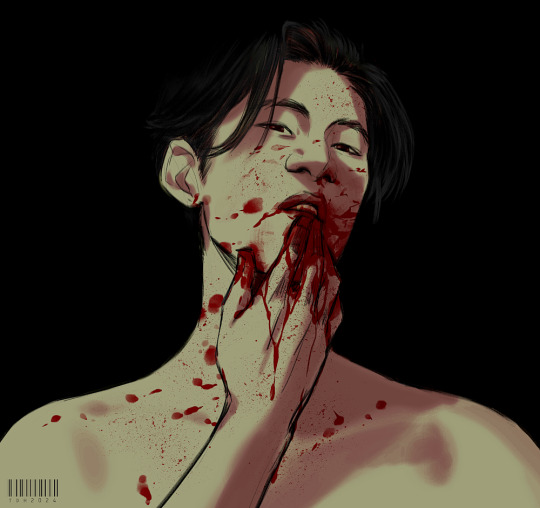
teef
224 notes
·
View notes
Text
Love Sea Episode 9 Preview be like:
Next week we're serving pain. Lots of pain. (You're welcome).



I'm really looking forward to Fort and Peat's performances next week. Their acting chops shine when they're tackling the angsty, gut-wrenching stuff.
#love sea#love sea the series#tongrak x mahasamut#rakmut#fortpeat#fort thitipong#peat wasuthorn#my distraught boys#rak's gonna do the whole 'im protecting you by leaving you' cliche that breaks the heart of person you're trying to protect UGHHHH#then mut's going to cry buckets and be completely devastated#at least the stupid contract is getting the treatment it deserves#being torn into pieces#jak is gunning for the worst father award#mut is literally getting a beating physically emotionally spiritually
123 notes
·
View notes
Text
There's something I love about Home being the catalyst for Peach not only being able to see ghosts but of the subsequent events that led to his withdrawal from life while also, years later, being the catalyst for Peach's healing. All along, Home has been unknowingly healing the damage he caused, coaxing Peach back into the world of the living—at first, it was just for his own selfish ends, but now it's with purpose because he cares about him. I just— That is so delicious to me. He's the cause and the cure without even knowing!! (Obviously it’s more complex, but I’m tired and anxious and just thinking about this one facet)
And I really can't wait to see what this reveal does to their relationship (angst incoming, one assumes) and how it's all going to play out and ahhhhhh! I really love this show.
#peaceful property#peaceful property the series#peaceful property spoilers#peaceful property the series spoilers#lazzarella watches tv#And says dumb obvious things about it lol#Anyway I’m wondering if next week it’ll be like home tries to give the peace offering do over with chai un without telling peach#And peach finds out toward the end and they go their separate ways and the week after a case brings them back together#Or if that’s too cliched
44 notes
·
View notes
Text
juno signs and their specific love language 🦋🪷
I took the idea from a question a uquiz test, a long time ago. it was in my drafts.

pinterest
*birth chart/whole sign system
Gemini
you need someone that’s intelligent, not a nerd but someone you can talk continuously without being bored, someone that’ll stimulate your brain. I’m not referring to them as a clown, I’m referring to them as curious. you probably find it very attractive when others take the initiative to start a conversation, adding a topic or being in silence when’s needed. people that have Juno in Gemini is kind of a sapiosexual (“individual who finds high levels of intelligence the most sexually attractive attribute”). they get bored pretty easy. they love to share ideas and understand or simply are curious about others perspectives/fields their partner likes.
their oddly-specific love language is to share information, a link, a document, making a resume, making a playlist -that does count as information👅- informing the other about something without u asking them.
Aquarius
they’re freaky dicky. they need someone as freaky as them, with the same humor or that gets them. they want someone that embrace their “rare” side, they have been struggling to accept it on this lifetime. friends, they need to be friends first, if not they’re fucked, it’s not gonna be healthy -I wrote it a long time ago but now I don’t share the same idea, take it if it resonates-. they’re attracted to a free spirit or a partner with different ideas that’s not afraid to confront them about it. they would like to share their most rare experiences and hidden preferences.
Their specific love language is to give gifts BUT like a cup with form of a penis or trending meme stuff both of you like or…they’ll defend you and speak well about you, like they’re blind. doesn’t matter if you’re a murderer, they’ll justify it and will try to make you look like a good person.
Capricorn
secretly, so profoundly they are attracted to someone’s seriousness or persistence, goal driven. they make their own reality. They look and are powerful -powerful not only means to put your chin up but to have presence, to know what you want, your resources and use them to your favor-. they need their partner to respect them and their boundaries. they need to be in charge, control. IK they’ll want someone that will put upside down their “being in charge” game. They want someone that will bossy them (when they‘ll know each other well). They’re independent, they like their own time.
Their specific love language -for most basic it could sound- is quality time and showing they care for you: they could be prideful and have trust issues, showing affection/being worried openly towards you -it’s not even the 1/4 of how they truly feel-. they like to take it slow, they won’t commit easily but when they want to know you, they’ll try and would deeply, they’ll take their time: they’ll protect you.
—•—•—•—•—•—•—•—•—•—•—•—•—•—•—•—•—•—•—•—•—•—•—•—•—•
❀ Based on my personal experience and what I’ve analyzed in my surroundings.
❀ English is not my first language.
❀ I’m not a profesional astrologer, I love astrology and I’m willing to learn.
Thank youu. baibaiii🫣🫶🏼💋
Do not copy. Please give me credits.
#Juno#astrology#astro observations#pinterest#astro posts#astro notes#astro placements#birth chart#Gemini#Aquarius#Capricorn#Juno series#astro#astroblr#love language#quality time#gift#cliche
360 notes
·
View notes
Text

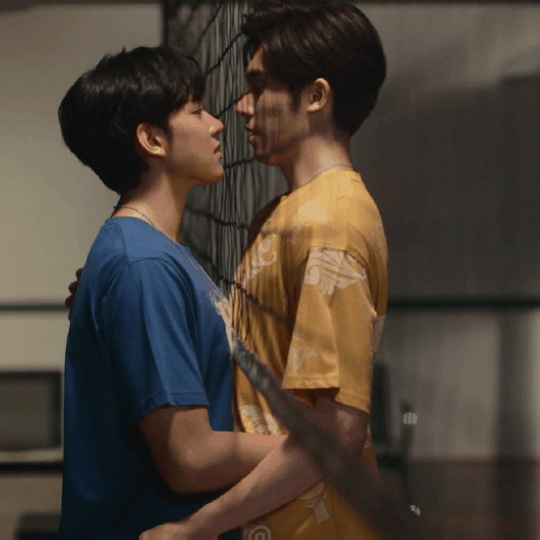
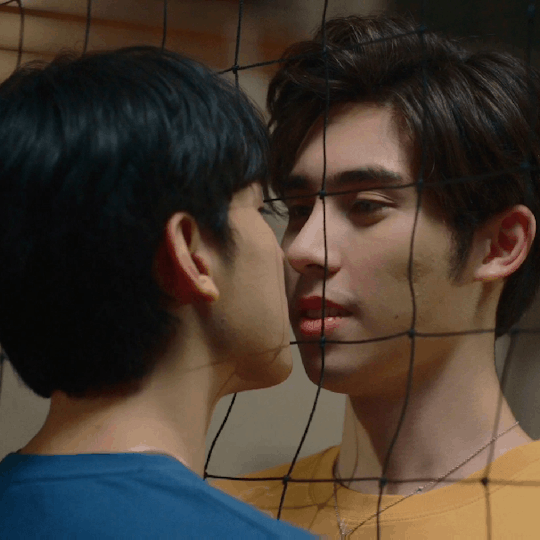
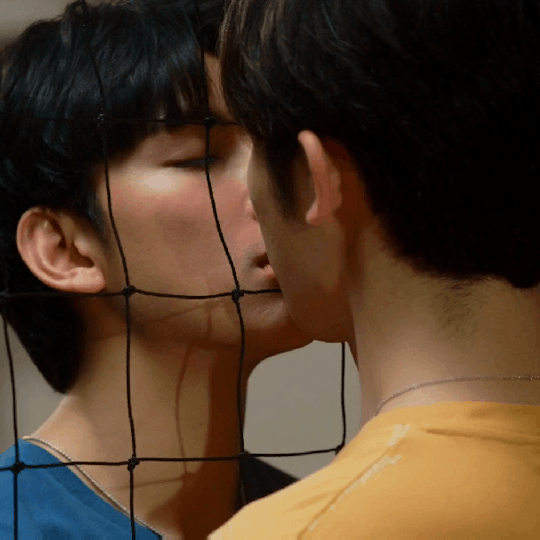
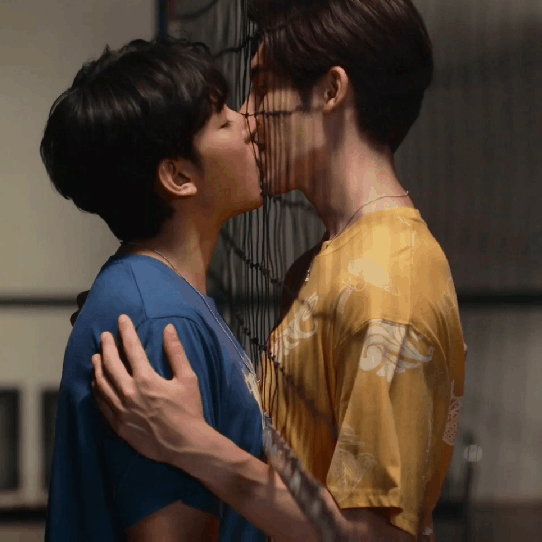


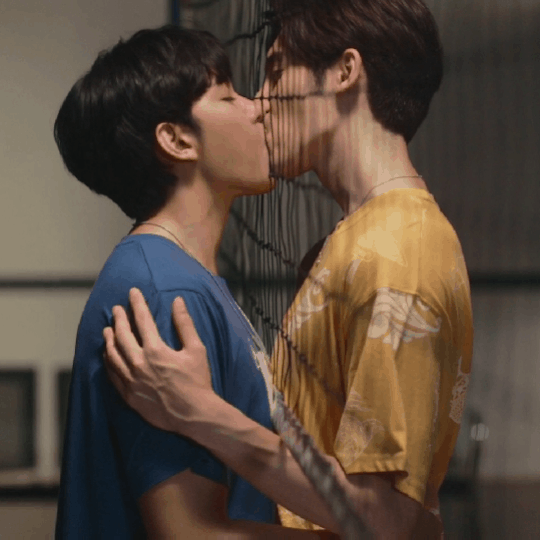
#well im kind of disappointed#it was such a great start but then they just ruined it by cliche arguments and misunderstandings#but it was a solid last ep#2nd part of the final ep was so much better than beginning#this scene was gold#all in all this 2 deserve better plot#twins the series#twins#twins series#frameryan#frame ritchanon#ryan panya
119 notes
·
View notes
Text
You just had to be there
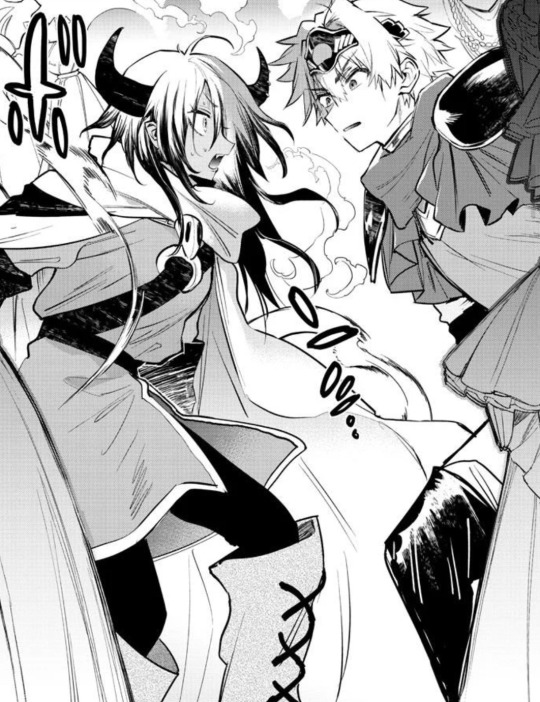


Like ik if the fandom was even just a fairly decent size there would be way more craze lol I need to hype them up to compensant
#maoujou de oyasumi#sleepy princess in the demon castle#demon king twilight#dawner the hero#akataso#this chapter permanently changed my perception of this series going forward#when your human enemy you know will have to eventually fight you to end a life long conflict was actually ur childhood crush#they’re both bi ur honour#this plot twist also made Dawner so much more interesting than just a cliche hero archetype who the mc happens to despise#Suya really dodged a bullet tbh#manga cap
97 notes
·
View notes
Photo

Come, shall we dance?
; the sinner of lust.
[click for better quality on mobile]
#clariqueenzz#evillious chronicles#evillious#the seven deadly sins#sateriasis venomania#cherubim#madness of duke venomania#mothy#gakupo#kamui gakupo#gackpoid#VOCALOID#getting back into evillious again#im gonna make this a series and do all the sins#cliche? cliche. but i love them#this is my own take on his design btw#i wasnt satisfied with the og#gave him sort of a 'malice mizer rejected member' kind of vibe#'sinner of lust' THEN MAKE HIM SLUTTY GODDAMNIT
718 notes
·
View notes
Text
How Ryan feels:




Reality:


Bonus:

#the trainee the series#the trainee#peachblossomgifs#gun atthaphan#i love this so much lol#i love how they keep showing the different cliches of being in love for the intro#i will say i wish we had some more janeryan screen time#hope we see more of them next week
32 notes
·
View notes
Text
i know i’m late to the party but where are the fanfics about this two?!?!?
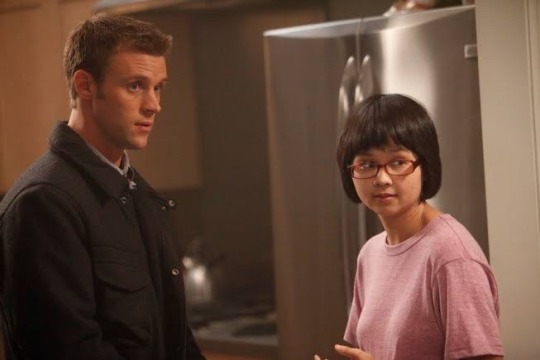
32 notes
·
View notes
Text
#reminder that pavel doesn't mind and is mostly just trolling pooh & fans and pooh insists on poohpavel because it's in the drama#+ their constellation is a breeze of fresh air against cliches#(also why can't pooh be top / first / leading / whatever meaning is all in the ship name. love that he stays stubborn with that)#poohpavel#pooh krittin#pavel phoom#goddess bless you from death#pit babe the series
43 notes
·
View notes
Text
About the "Tolkienesque renaissance"
The term "Tolkienesque renaissance" is of my own invention and creation, but it is a name I use to designate a very specific wave of fantasy fiction, or rather a specific phenomenon in the evolution of fantasy in the English-speaking literature.
As we all know, Tolkien's shadow cannot be escaped when doing fantasy. Tolkien's works being published began the modern fantasy genre as we know it today. D&D, the other big "influencer" of fantasy, would not have existed without Tolkien. The Peter Jackson trilogy began the fantasy renewal of the 21st century. Epic fantasy is a sub-genre explicitely designed after Tolkien's work.
And the massive influence of Tolkien over fantasy is the most felt in the second half of the 20th century, in English-speaking literature, through something I would call the "Tolkien cold-war". When you take a look at the fantasy books of the second half of the 20th century, you notice a fundamental clash and divide splitting it all in some sort of silent feud or discreet conflict. On one side, you have the "Tolkien followers" - as in, the authors who walk in Tolkien's footsteps ; on the other side, you have the "counter-Tolkien" offering what is essentially a counter-culture in a Tolkien-dominated fantasy.
We all know that Tolkien's success was huge in the early second half of the 20th century. The success of "The Lord of the Rings" and the "Hobbit" and the "Silmarillion" was especially important during the 60s and 70s - Gandalf for president and all that... People loved Tolkien's fantasy, people WANTED Tolkien's fantasy, and so publishers and others were happy to oblige. This began the "Tolkien followers" movement - but this beginning was a very unfortunate one, because it was one that relied on not just homage, imitation or pastiche... But in pure copy-cat and sometimes complete rip-off. Since people wanted some Tolkien, people were given LITERAL Tolkienesque fantasy. The most famous (or unfamous example of this would be the 1977 's "The Sword of Shannara" novel. This novel was designed to literaly be a simplified "The Lord of the Rings" with only a few details changed here and there. In fact, this is most of what people recall about this book - how blatant of a Tolkien rip-off it is. And yet, this book was a BEST-SELLER of the 70s fantasy, and it was a huge success, and everybody loved it, precisely because it did the same thing Tolkien did, and so you got to enjoy your favorite series all other again. Afterward, Terry Brooks, the author of the novel, expanded it into a complete series moving into much more original and personal directions, as he admitted himself that doing a Tolkien copy-paste was more of a publishing and editorial decision to make sure he would sell and settle himself in the literary landscape rather than an actual artistic project or personal desire. "The Sword of Shannara" got its own sequels, and became its own thing (though VERY reflective of what the 80s American fantasy was in terms of style, tone and content), but nowadays everybody remembers it for being the "Tolkien rip-off" in its first novel.
And yet being a Tolkien rip-off can sell well, and if the "Shannara" series hadn't proved it, "Dungeons and Dragons" did, since its first edition in the late 70s went as far as to just take Tolkien's inventions such as orcs, Balrogs and hobbits, and include it in its game. The same way the Shannara series then found its own tone and content, through the successive editions Dungeons and Dragons then began to build a world of its own... But it confirms what I said: it was the era of the Tolkien rip-offs.
In front of these "Tolkien followers", which were back then "Tolkien imitators", there was another movement that drove fantasy forward - and it was the "counter-Tolkien movement" so to speak. Works of fantasy that willingly chose to depart from Tolkien's formulas and archetypes and tropes, to do their own thing. Sometimes they did it out of an actual dislike of Tolkien's books: for example the "Elric Saga" was created because Moorcock hated the paternalist, moralist tone of The Lord of the Rings, and so he countered Tolkien's world with a protagonist serving the Lords of Chaos, using a soul-sucking evil sword, last remnant of an empire of cruel, decadent and demonic elves, in a tragic world doomed to endless falls and oblivions... (Though, ironically, Moorcock would end up initiating a genre of dark fantasy that Tolkien himself had explored in his unpublished texts...). Others did it not because they disliked Tolkien but wanted to prove you could do something else: for example Ursula Le Guin admired and appreciated Tolkien's works, but she was fed up with all the imitators and pastiches, and so she created her "Earthsea" world. No European setting dominated by white people, but an archepilago of islands with dark-skinned characters. No big war or political manipulations, the stories being about about the life, journeys and evolution of individual people. No sword-wielding hero or horse-riding paladin, but wizards and priestesses as the protagonists. No big prophecy about the end of the world, flashy magical sword or evil overlord ready to destroy the universe (well... almost), but rather philosophical and existential battles doubling as a fight against oneself and one's very existence...
This counter-Tolkien genre definitively peaked with the other big name of "dark fantasy" and what would annonce the "grimdark fantasy" a la Game of Thrones: Glen Cook's The Black Company.
But what about the titular "Tolkienesque renaissance" I speak of?
Well, if the "Tolkien followers" had only done bad rip-offs, it would have never lasted, ad the "counter-Tolkien" movement would have won. In fact in the 80s, it almost did! Tolkienesque fantasy was thought of as cliched and stereotyped and overdone and dead. People had enough of these blatant-rip offs, as the hype of the 60s and 70s had died out, and the 80s folks turned to other forms of fantasy - such as The Black Company (Dark Fantasy), or Fafhrd and the Gray Mouser (Sword and Sorcery), or various parodies and humoristic fantasies, but all far from the "epic fantasy". And yet, something happened... The "Tolkien imitators" became "Tolkien followers" or rather "Tolkien reinventors", and began the "Tolkienesque renaissance".
The Tolkienesque renaissance is this group of fantasy authors, most predominant in the 90s though they began their work by the late 80s, that decided they would make the Tolkienesque fantasy live on. Not just by copying it as their predecessors did, a la Shannara, no. But by reinventing it, freshening up the old ways for a modern audience and new times. They took back all the key ingredients, and the famed archetypes and the usual tropes of the epic fantasy a la Tolkien, and they reused them without shame... But in new ways, with twists and turns, playing on the codes of the genre, while carefully avoiding the cliches and stereotypes of the time. Giving what people liked about epic fantasy, while also producing new works that felt fresh and went into opposite directions - taking lessons from the counter-Tolkien movement.
It is commonly agreed that the series that began this renaissance was David Eddings' The Belgariad, published between 1982 and 1984. Just a look at the Wikipedia article mentions this best-selling, very influential fantasy series was the "last gasp of traditional fantasy, and the founding megasaga of modern fantasy"... Now, I actually have to disagree with Wikipedia's words. I do not consider it a "last gasp of traditional fantasy" since it already began the Tolkienesque renaissance and thus a new generation of fantasy ; and the other qualificative is ridiculous since modern fantasy already began with Tolkien, and the Belgariad is not a mega-saga, but just five average-sized books. But the idea of it being a link between an older and a newer generation of fantasy books is very true.
While The Belgariad has to be put first, second comes Robert Jordan's The Wheel of Time, which probably is the most famous of the Tolkienesque renaissance works of the 90s and became this behemoth of fantasy literature. And to make a trilogy of iconic works, I will add another 90s success: Tad Williams' "Memory, Sorrow and Thorn". Another iconic work of the Tolkienesque renaissance, though lesser known today than the Belgariad or The Wheel of Time - which is a shame, because Williams' work as a huge and heavy influence on a famous fantasy story of today... "A Song of Ice and Fire", which takes a LOT from "Memory, Sorrow and Thorn" (I even call this trilogy the "missing link" between LotR and ASoIaF).
The thing with these Tolkienesque renaissance series is that today, to an audience that was nourished by Tolkien and D&D and Pratchett and other things of the sort, a superficial glance might make them seem like "yet other rip-offs, yet other stereotyped, yet other clichéed" fantasy series. You just have to see the reception of the first season of "The Wheel of Time" tv series - here there was a clash between two generatons of fantasy.
And what these people who take a superficial glance will miss is how inventive and fresh and interesting these series felt back then because they played with or subverted the tropes and the codes of the traditional fantasy. They all played by the usual archetypes - you have an everyman young chosen one, a magical mentor who must "die" at one point, an evil overlord in an ominous half-disembodied state, evil black-clad horsemen going after the hero, elves and dwarves and trolls... And yet, these series twisted these same ingredients they used to bring new flavors.
Let us take the Belgariad briefly, to see how the whole Tolkienesque formula was subverted. Like in Tolkien you've got an order of wizards appeared as elderly, bearded men - but here, they are definitively human beings unlike the otherwordly Istari, and their appearance is explained by them being the disciples of a god that likes to take the appearance of a bearded old man, and who by divine influence made them look like him. You've got a dangerous, all-powerful item the big bad is seeking to destroy the world - but here it is no evil, or corrupting thing. It is rather an item dangerous because of the sheer scope and range of its power, and the temptation isn't becaue it is "evil" power, but just because it is a power so massive it can break the world. You've got a missing king with a stewart/regent holding the throne for him until the lost heir returns - but when said heir returns, the stewart/regent is no evil vizir or scheming usurper, and gladly offers back the throne to its legitimate owner. Belgarath, your Gandalf-stand-in, is far from being the dignified guide and noble mentor of Tolkien, as he is a half-werewolf drunkard that hates any kind of official ceremony or garb and prefers running through the woods or rolling under a table in taverns. And while everything is designed as a Tolkienesque setting, you've got no elves or dwarves or orcs - but humans. And that's a big change compared to more traditional 80s fantasy (like D&D or the Krondor series or Shannara). You have your Nazgûl stand-ins, but they're humans. You've got your Istari, but they're humans. You've got your dwarves equivalent, but they're humans. You've got your orcs equivalents, but human too. And it is shown that it is all a human vs human combat, despite being a world of magic and gods, placing some relativism into it all. (Though the fact they decided to subvert the Tolkienesque good vs evil wordlbuilding by having humans on both sides did cause other aspects of the series to age badly but that's another topic).
I can go on and on but I think you see my point - and this same subversion can be found in the other two series I talked about.
The Wheel of Time begins with the chosen one going on a quest... But which chosen one? That's the problem - there are multiple candidates, and so we begin with a guessing game. And the Aes Sedai are clearly an answer to Tolkien's Istari - but all women instead of all men, and much more numerous and pro-active. As for "Memory, Sorrow and Thorn" we have benevolent trolls that are actually more akin to Tolkien's dwarves and have some Inuit-influence, while the Tolkienesque-elves turn out to either be the big bads of the series and the evil guys ; or to be sheltered, useless side-characters that are not helping anyone and cause more problems than anything (I'm exaggerating a bit here, but you get the subversion). Spoilers - but the Galadriel equivalent literaly gets murdered during her second actual appearance, to make it very clear what kind of subversion we are into.
Because this was the game of these books - and the reason they were such huge successes. It wasn't about avoiding or setting themselves free from the tropes and code and archetypes of the genre. Rather it was about reappropiating them, reusing them, twisting them and modernizing them in order to get rid of the stale cliches and frozen stereotypes. It was all a game of imitation yes, but also of derailing - a subtle, discreet, derailing so that everybody got on board of the same type of train, but said train took different tracks to another landscape and worked on a different fuel. (If it makes sense?). It is a game of subtle twists - but unfortunately it is often this subtlety that makes these series overlooked, as people just focus too much on what is identical/similar and not much on what is different... Despite the differences being key here in this effort of renewing what was a dying style. Placing back these books in their context highlights even more how "fresh" they felt back then.
I have one specific point that illustrates this, but I'll need to write a whole post for it...
#fantasy books#fantasy literature#tolkienesque renaissance#tolkien#the belgariad#the wheel of time#memory sorrow and thorn#fantasy series#the elric saga#earthsea#the black company#lord of the rings#lotr#tolkienesque fantasy#dark fantasy#epic fantasy#fantasy cliches#fantasy tropes#the evoluton of fantasy
72 notes
·
View notes